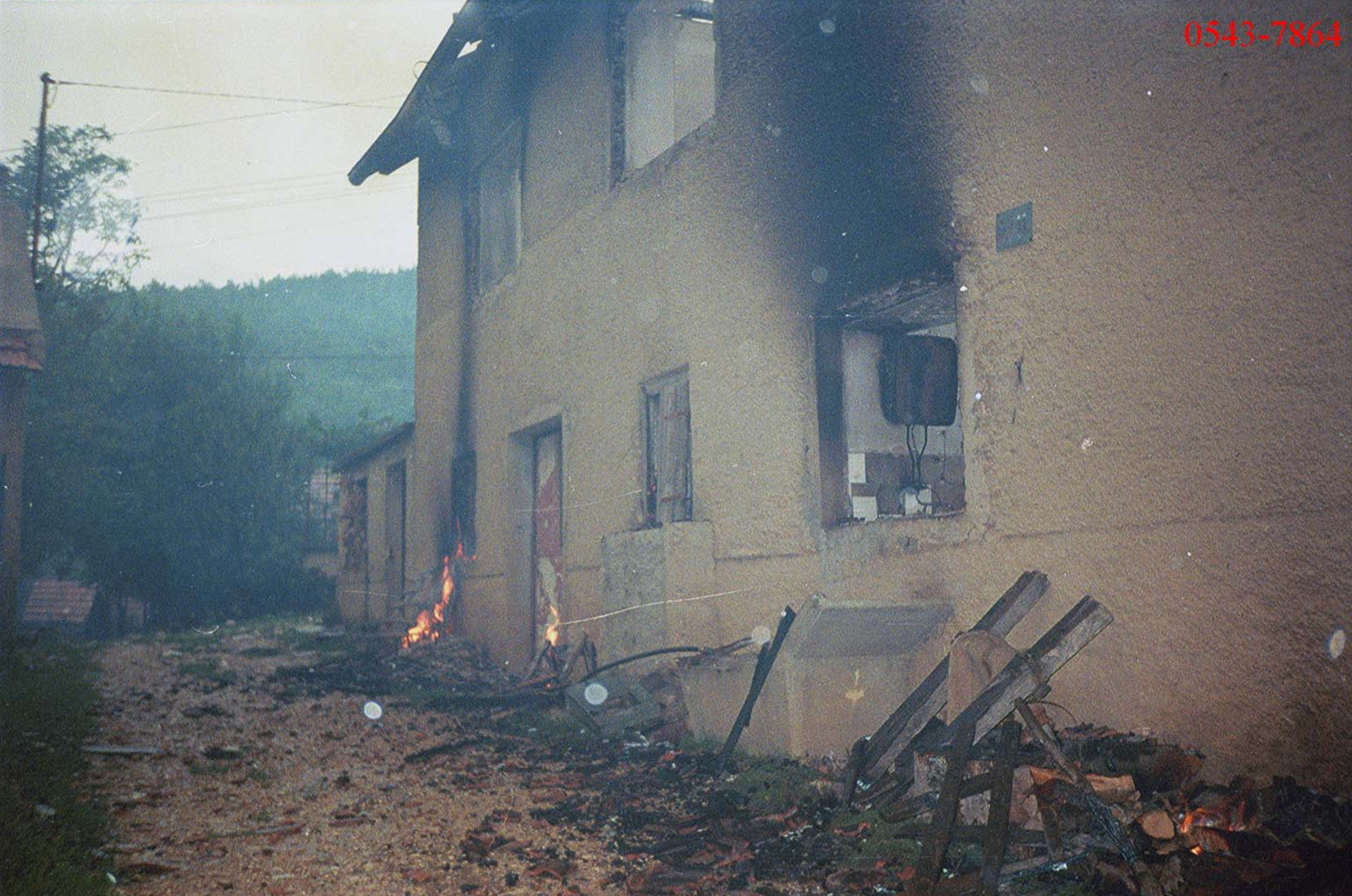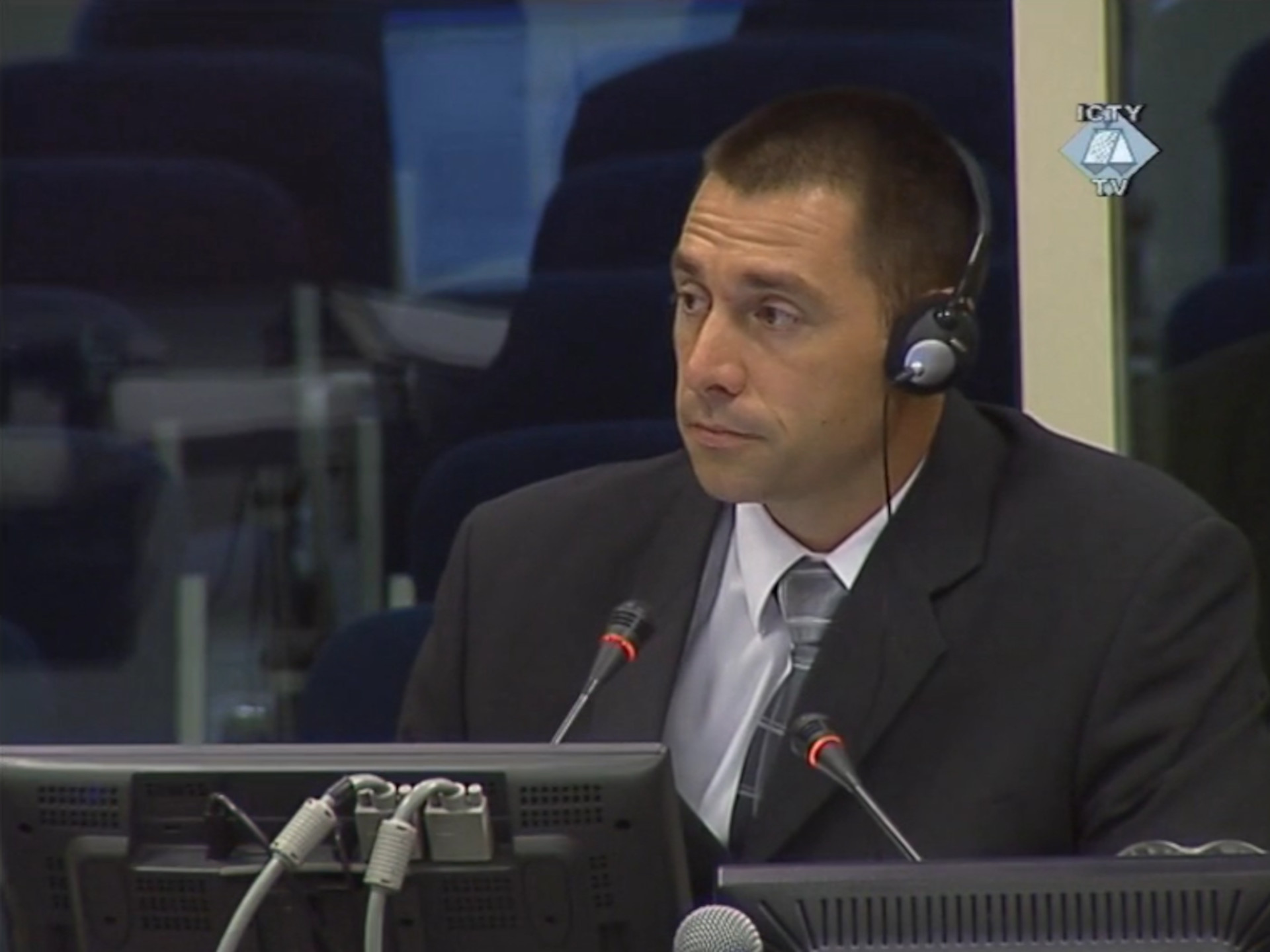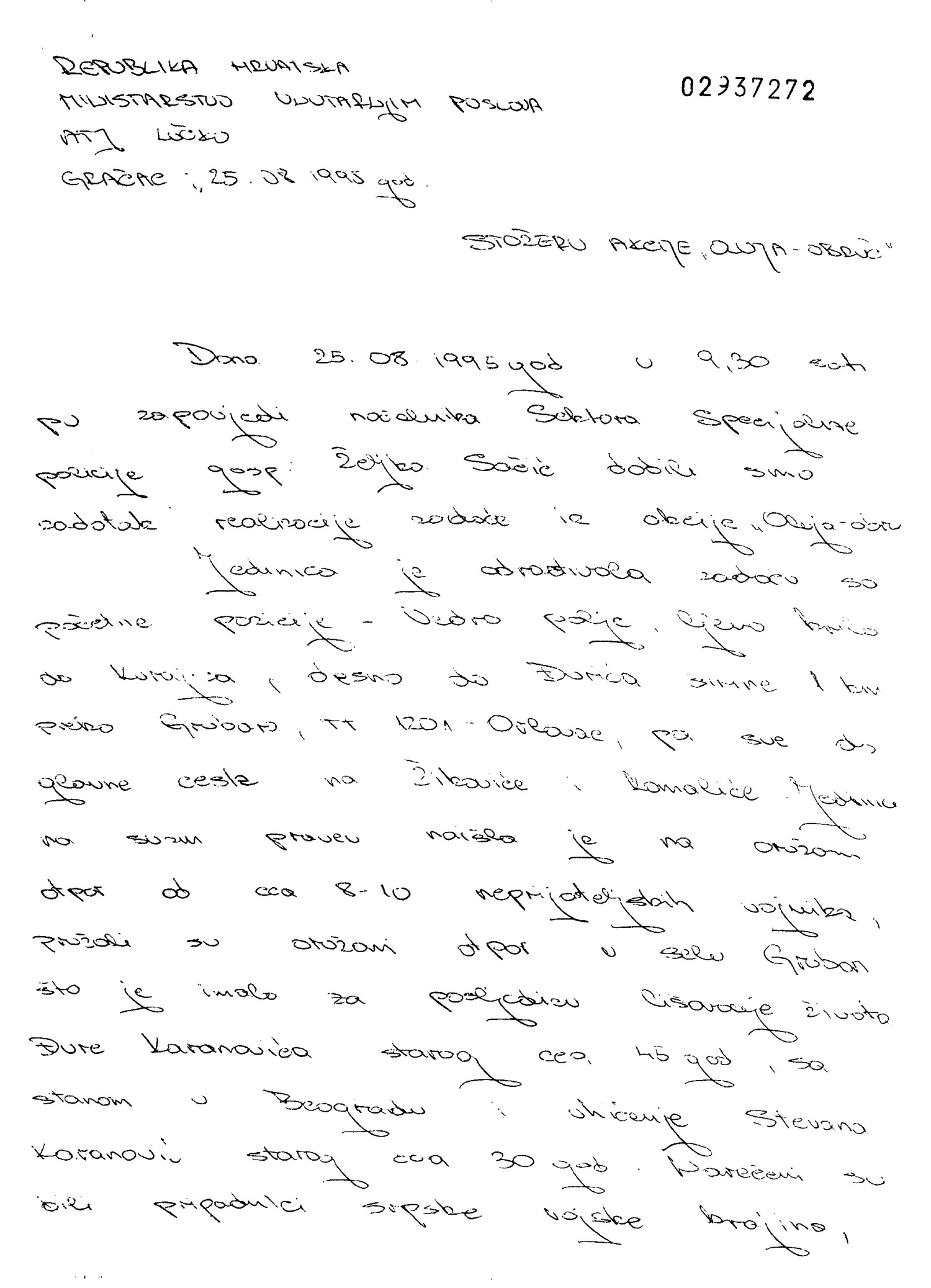Operation Storm in Grubori:
Clash Without an Opponent

The crime committed in Grubori, in terms of how it was carried out, resembles dozens of other crimes perpetrated against the Serb population in areas returned under the control of the Republic of Croatia during Operation Storm. Entering a village, killing elderly people who either did not want to or could not leave their homes ahead of the advance of the Croatian Army and Special Police, was a common occurrence in August 1995. However, there is something that sets the crime in Grubori apart from the others.
But first, let us say that six people were killed in this village in the Plavno valley near Knin on 25 August 1995: Marija Grubor (b. 1905), Milica Grubor (b. 1944), Miloš Grubor (b. 1915), Jovan Grubor (b. 1930), Jovo Damjana Grubor (b. 1922), and Đuro Karanović (b. 1954). Their houses were burned, and their livestock killed.
In most other crimes prior to the one in Grubori, the only potential witnesses were fellow soldiers of the perpetrators, who rarely dared report wrongdoing, or surviving civilians — mostly elderly — who had no access to the Croatian judiciary, let alone political institutions. This time, however, representatives of the United Nations entered the village while houses were still burning, and the corpses were still warm. They spoke to the surviving villagers and recorded the number plates of vehicles belonging to the Anti-Terrorist Unit Lučko (ATJ Lučko), parked in the immediate vicinity of the Grubori hamlet. To make matters worse for the perpetrators, the dead bodies, livestock, burning houses, and everything else they found were filmed.
At that point, no one could claim the murders had not happened or, at the very least, that the perpetrators were rogue shooters beyond the reach of the authorities.

As a result, plan B was put into motion — to falsify the report on Grubori. The then Commander of the Knin Military District and representative of the Government of the Republic of Croatia for the entire liberated territory, Ivan Čermak, gave a statement to the UN television team saying that what had taken place in Grubori was "an exchange of fire between the Special Police and remaining Chetnik groups," and that stray bullets exchanged during the clash had set fire to numerous houses and killed no fewer than six people.
But Čermak and the entire cover-up operation were undermined by the field report written by the commander of the Croatian Special Police from the ATJ Lučko unit in charge of the clearance operation, Josip Čelić, on 25 August 1995, which stated that there had been no combat in the Plavno valley. The following day, he was summoned to the Special Police headquarters in Gračac, where the commander of the Special Police at the time, Mladen Markač, and his deputy, Željko Sačić, told him there had in fact been clashes with Serbian "terrorists" in Grubori and that the report should be amended. The new, falsified report was dictated to him by Sačić. "The unit encountered armed resistance by approximately 8 to 10 soldiers along its route; they resisted in the village of Grubori." One of the attackers, the report continued, was killed, another arrested, and four elderly civilians were caught in the crossfire, while "as a result of a defensive hand grenade," three barns, one house, and various other structures were burned down.
The falsification continued once the Special Police returned to their base in Lučko, near Zagreb. All the field group commanders (there were four of them), as well as Čelić, who led the entire clearance operation in the Plavno valley, were instructed to write new reports with content similar to what Sačić had dictated to Čelić. This completed a fabricated file describing a fictional battle in Grubori that allegedly resulted in the accidental deaths of civilians.
There is also substantial evidence that Sačić obstructed an investigation by the regular police into the crime and that there were suggestions, should the investigation proceed, to place rifles next to the corpses (despite them being elderly people in their eighties and nineties) to make them appear as soldiers.
From police reports and witness testimony before the Hague Tribunal, it is clear that two of the four ATJ Lučko groups passed through Grubori on 25 August 1995, those under the command of Frane Drljo and Božo "Krajina". They were acquitted by the Croatian courts. Similarly, the criminal offence for which Željko Sačić was charged was reclassified in a way that allowed for the statute of limitations to be applied. Mladen Markač was acquitted by the Hague Tribunal.
To this day (and it truly does not matter when exactly this text is being read), the Croatian judiciary has done nothing to resolve the crime committed in Grubori or appropriately punish those responsible. All of this is, admittedly, unsurprising given that for war crimes committed during and after Operation Storm, the Croatian judiciary has handed down only two guilty verdicts.




